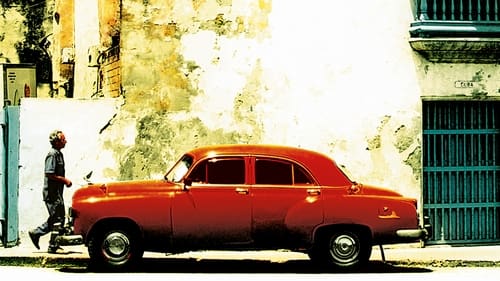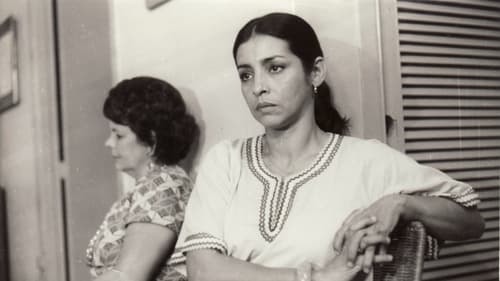Daisy Granados
Birth : 1942-12-09, Cienfuegos, Cuba
History
Daisy Granados is a Cuban film actress. She has appeared in more than 40 films since 1964. At the 11th Moscow International Film Festival in 1979, she won the award for Best Actress for her role in Portrait of Teresa. In 1985, she was a member of the jury at the 14th Moscow International Film Festival.

Five years after the passing of the iconic filmmaker Humberto Solas, one of the founders of the New Latin American Cinema, partners, friends and family gather to evoke aspects of the life and work of Cuban artist of universal size.

Maruja
A widower is surprised to learn that his late wife lead a double life.

Magdalena
Determined to restore her dying father's reputation, Ana travels to the remote town of Rosales. Decades ago, he settled there and opened his first free clinic for cancer research. He launched an illustrious medical career - and fell in love. Ana plans to celebrate her father's scientific and humanitarian achievements by transforming the old family mansion into a world-class museum. She will preserve his legacy, and also breathe new life into the forgotten Rosales. But the townspeople-now destitute and helpless-do not greet her warmly. Neither does the house.

Delia (segment "El Yuma")
A young American boy is trying to break into the acting business, and goes to Cuba during a film festival.

Irene

Madame
Based on a true story about a road crew that raced to build the road between Brasilia and Fortaleza and the unexpected events that unfold make this film funny, engaging, and a true gem.

A poetic journey about the life and work of Puerto Rican poet Julia de Burgos.

Cunda
Carla, a young postal worker in Havana, spends her days postmarking thousands of letters and dreaming of the day when she can be reunited with her parents, who moved to Miami when she was fifteen. To fulfill her longing for intimacy, she opens random letters and rewrites them into lyrical prose, believing she is helping her fellow Cubans understand one another better. Beautifully filmed in black and white accented by brilliant colours, Nada+ has a stunning visual composition. With its delightful mix of visual humour, theatrical characters, satire and a lighthearted love story, it has a distinctly Cuban flair.

Mabel
Like her mother before her, beautiful Sissy wants to be a dancer at the Tropicana, Havana's famous cabaret. But her father, Candido, forbids her to do so because of his ongoing grudge against Armando, his former rival and choreographer at the nightclub.

Walter, an aspiring musician from Madrid, has a lot of troubles. After finding a videotape, he learns something which will alter his whole life, and put his Madrid problems on hold. In the tape, a Cuban woman confesses to being his mother. She is waiting for him in Havana. Walter goes to Havana to see his mother. There, the plot thickens with the addition of the mother's daughter, and a Spanish airline crew member, who round out the quartet.

María
Three sisters leave Cuba in search of a better life in Madrid. While there, they encounter, among other things, other Cuban expatriates.

After two years in jail, El Isleño returns to the island of La Fe, ruled by the dictator Francisco Gavilán. He arrives with a cinematograph and exhibits "Robin Hood" to the people. The next day the bridge that communicates La Fe to the mainland has been destroyed, and the people plan to overthrow Gavilán.

Doña Rosita Pintado
In Santa Fe de Tierra Firme, an imaginary Latin American country, the indigenous dictator Santos Banderas rules with an iron fist. A group of rebels trying to seize power by force while some liberals try a change of government legally.

Ruben lives in Cuba and Andy is exile in the United States. Both are trapped by history at opposite poles and want to change places, but they can't do it.

The plot is situated in Cuba during the early '50s, before the cuban revolution. A prostitute gets in love with a boxer to whom she devotes her life. As the boxer progresses in his career, he gets money and women. The prostitute tries everything to keep him meanwhile her tortured soul sinks deeper and deeper.

Concha
A superstitious middle-aged woman falls in love with a taxi driver, while trying to learn the identity of the unseen person tossing eggs at her.

An elderly man with wings is blown off course during a tropical storm in this symbolic fantasy. The Old Man lands near a Caribbean island where a poor family gives him shelter in a chicken coop. Father Gonzaga is the skeptical priest who rushes to damn the creature. Soon the Old Man is the subject of curiosity seekers as Elisinda and Pelayo start charging admission. A traveling carnival of human oddities camps near the Old Man as people flock to see the show. The Old Man is reduced to being an unwanted pet, and after six years, he mends his wings and flies away. Nudity, simulated sex with a spider woman, and the ugliness of human exploitation definitely put this fantasy in a category not for children.

A left-wing intellectual, faced with the imminence of his arrest during the coup d'état against President Joao Goulart, lives anguished moments of definition. To the collapse of his small universe is added a conjugal confrontation that unmasks him mercilessly.

Rita
Javier Argüelles, an opportunistic young man from Cuban middle class, survives all kind of political changes in Havana, from 1932 to 1959, while his brother Darío is persecuted and killed because of his leftist ideas.

Laura
The world of a young psychiatrist is shattered when she finds out that her husband is having an affair with one of her patients.

Cecilia
The story of Cecilia is a story of the society that dominated 19th-century Cuba, a society divided between whites, blacks, and those who were mixed, the mulattos. (Since the Spanish conquistadors killed off the Indian population in Cuba not long after they took over the island, there are no mestizos, or those of mixed-Indian blood in Cuba as in other Caribbean nations.) At any rate, the drama about the life and loves of Cecilia (Daisy Granados) takes place against the backdrop of graphically violent mistreatment of slaves and the rumors of a slave rebellion after the Cubans hear of slaves turning against their captors in Haiti.

Teresa
Teresa is overwhelmed: with a husband, three young sons, a job as a crew leader in a textile factory, and volunteer commitments as cultural leader of her union. Her husband, Ramón, wants more of her attention; her feelings are mixed, wanting domestic peace, feeling responsibilities to the revolution, and wanting to control her own life beyond doing dirty dishes. They separate; he begins an affair. When he wants a reconciliation, she asks what his response would be if she'd had an affair too. "But men are different," is his reply. He's failed her test, and to hold on to independence and self-respect, she remains uncompromising and hard-edged.

Floricita
Los desafíos presents three separate stories that are linked by an American presence in Spain in the 1960s, with Dean Selmier playing the role of the American male in all three.

Elena
In the aftermath of the Bay of Pigs incident, Sergio chooses to stay behind in Cuba while his wife and family escape to neighboring Miami. Alone in a brave new world, Sergio observes the constant threat of foreign invasion while chasing young women all over Havana. He finally meets Elena, a young virgin girl he seeks to mould into the image of his ex-wife, but at what cost to himself?

Caroline
Adam receives a flashlight with special powers: every liar it shines on flies into the air. Production was cancelled in 1965/66 due to the film's political content. Only in 1989/90 could the director reconstruct the film, where missing sounds and images are replaced with script inserts.









